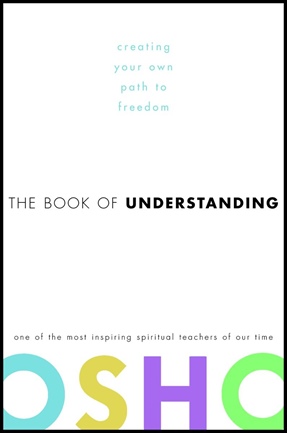Description
The path to freedom is filled with questions and uncertainty. Is it possible to truly know who we are? Do our lives have a purpose, or are we just accidental? What are we meant to contribute? What are we meant to become, to create, and to share? In The Book of Understanding, Osho, one of the most provocative thinkers of our time, challenges us to understand our world and ourselves in a new and radical way. The first step toward understanding, he says, is to question and doubt all that we have been taught to believe.
All our lives we’ve been handed so-called truths by countless others—beliefs we learned to accept without reason. It is only in questioning our beliefs, assumptions, and prejudices that we can begin to uncover our own unique voice and heal the divisions within us and without.
Once we discover our authentic self, we can embrace all aspects of the human experience—from the earthy, pleasure-loving qualities that characterize Zorba the Greek to the watchful, silent qualities of Gautam the Buddha. We can become whole and live with integrity, able to respond with creativity and compassion to the religious, political, and cultural divides that currently plague our society.
In this groundbreaking work, Osho identifies, loosens, and ultimately helps to untie the knots of fear and misunderstanding that restrict us—leaving us free to discover and create our own individual path to freedom.
About the Author
Rajneesh (born Chandra Mohan Jain, 11 December 1931 – 19 January 1990) and latter rebranded as Osho was leader of the Rajneesh movement. During his lifetime he was viewed as a controversial new religious movement leader and mystic.In the 1960s he traveled throughout India as a public speaker and was a vocal critic of socialism, Mahatma Gandhi, and Hindu religious orthodoxy.Rajneesh emphasized the importance of meditation, mindfulness, love, celebration, courage, creativity and humor—qualities that he viewed as being suppressed by adherence to static belief systems, religious tradition and socialization.In advocating a more open attitude to human sexuality he caused controversy in India during the late 1960s and became known as "the sex guru".In 1970, Rajneesh spent time in Mumbai initiating followers known as "neo-sannyasins". During this period he expanded his spiritual teachings and commented extensively in discourses on the writings of religious traditions, mystics, and philosophers from around the world. In 1974 Rajneesh relocated to Pune, where an ashram was established and a variety of therapies, incorporating methods first developed by the Human Potential Movement, were offered to a growing Western following. By the late 1970s, the tension between the ruling Janata Party government of Morarji Desai and the movement led to a curbing of the ashram's development and a back taxes claim estimated at $5 million.In 1981, the Rajneesh movement's efforts refocused on activities in the United States and Rajneesh relocated to a facility known as Rajneeshpuram in Wasco County, Oregon. Almost immediately the movement ran into conflict with county residents and the state government, and a succession of legal battles concerning the ashram's construction and continued development curtailed its success.In 1985, in the wake of a series of serious crimes by his followers, including a mass food poisoning attack with Salmonella bacteria and an aborted assassination plot to murder U.S. Attorney Charles H. Turner, Rajneesh alleged that his personal secretary Ma Anand Sheela and her close supporters had been responsible. He was later deported from the United States in accordance with an Alford plea bargain.[After his deportation, 21 countries denied him entry. He ultimately returned to India and a revived Pune ashram, where he died in 1990. Rajneesh's ashram, now known as OSHO International Meditation Resort and all associated intellectual property, is managed by the Zurich registered Osho International Foundation (formerly Rajneesh International Foundation). Rajneesh's teachings have had a notable impact on Western New Age thought, and their popularity has increased markedly since his death.
